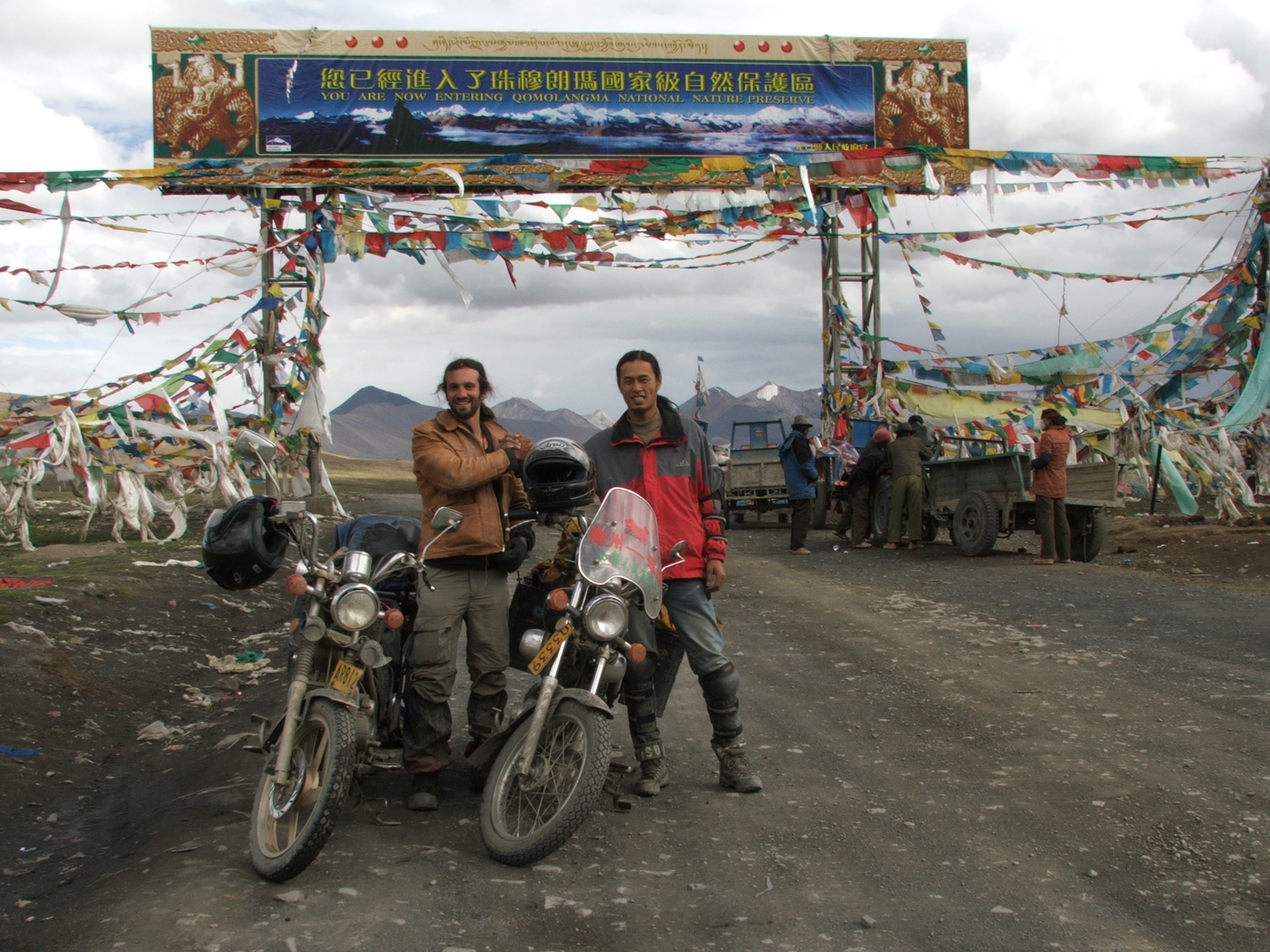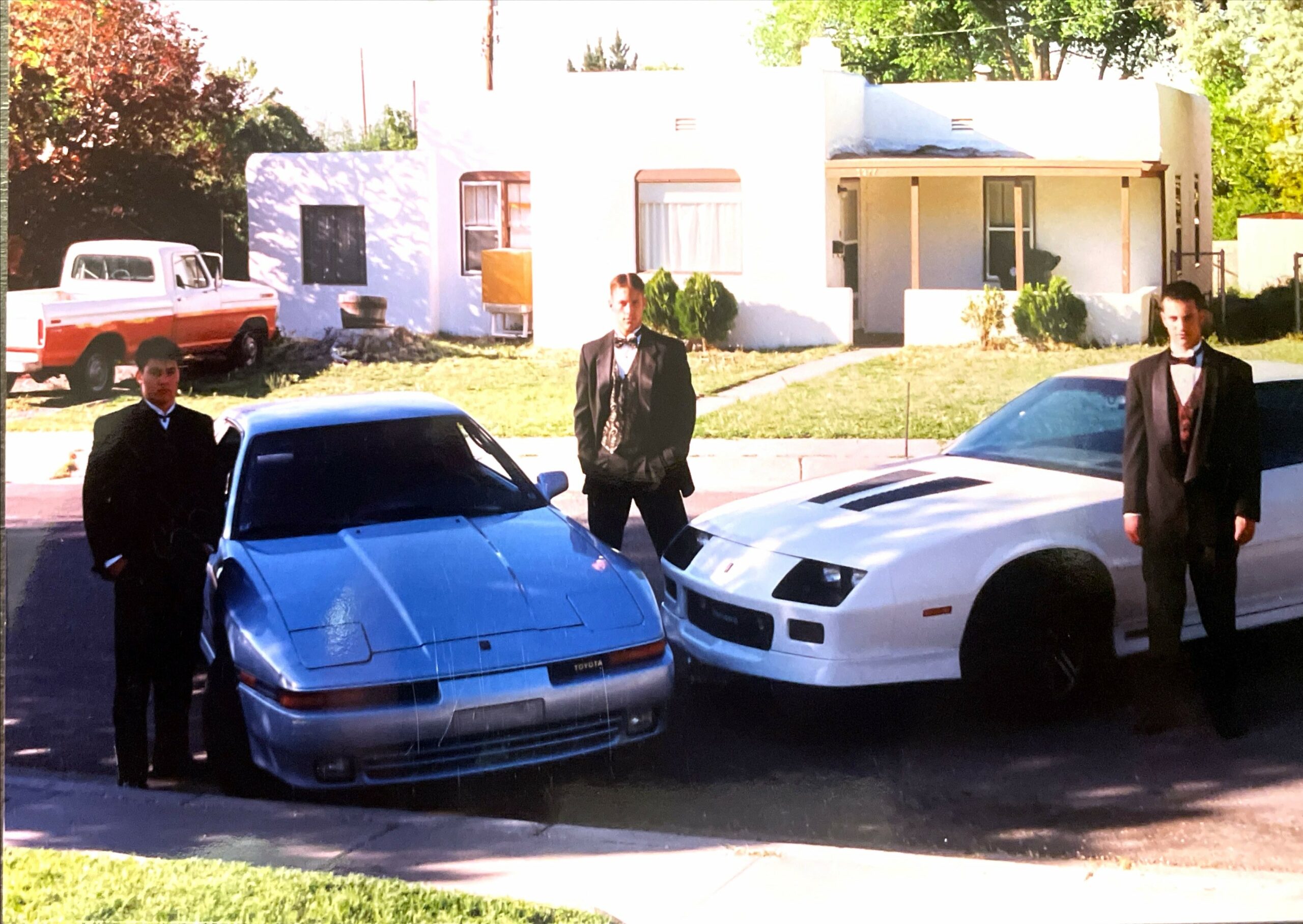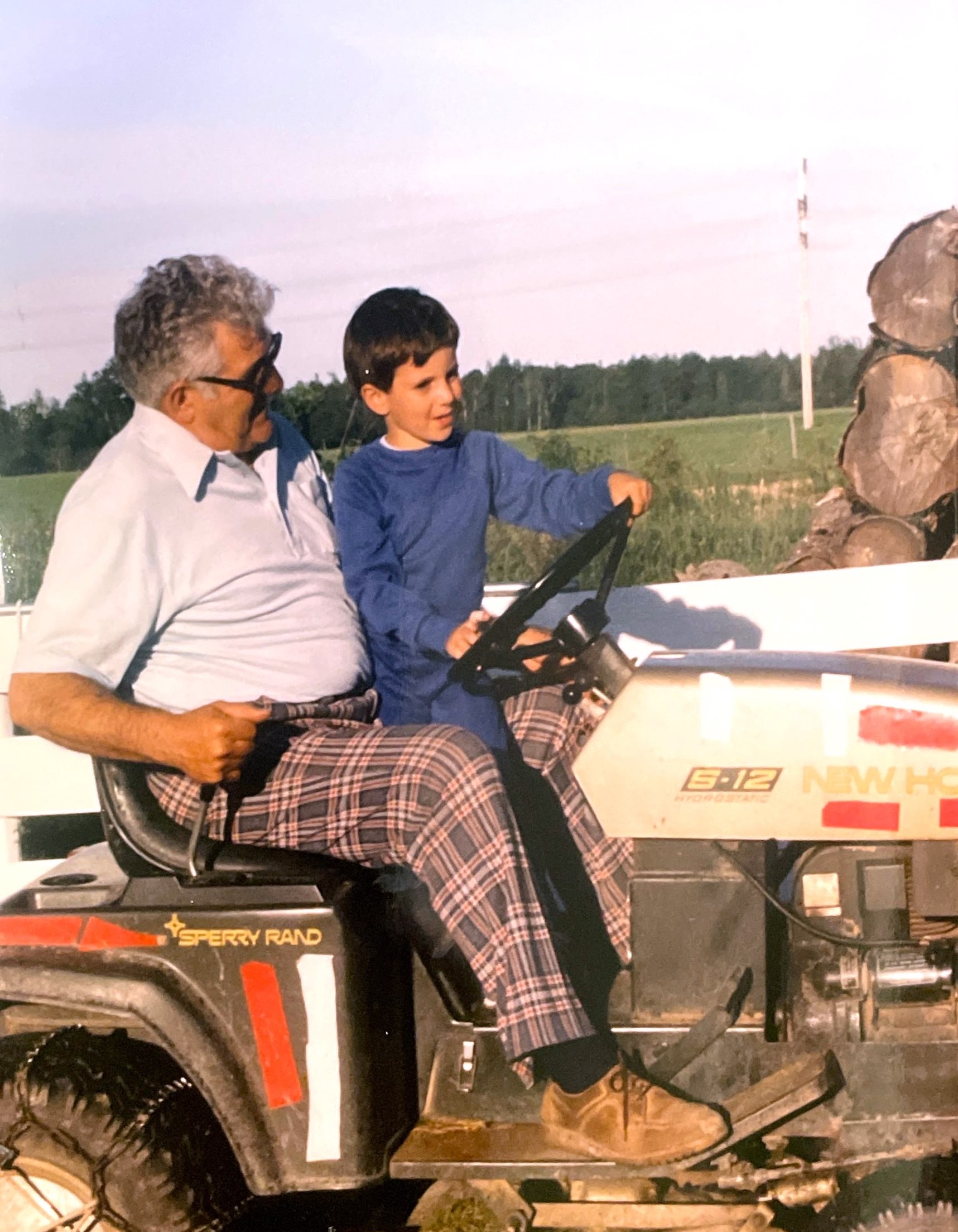Clunk, clunk, clunk, hiss. Eighteen-year-old Zach Fredman stared over the steering wheel of his white Chevy Camaro as it slowly came to a halt.
With a deep sigh, he popped open the door and stepped outside, feeling the warm New Mexico sun hit his face.
He was at an intersection, a few miles from home on the outskirts of Albuquerque, a midsized American city with a mixture of Native American Pueblo architecture and generic strip malls on the banks of the Rio Grande. In one direction was the road to his parents’ house and in the other lay the open road, stretching out across the desert into the shimmering distance, where new people, places and adventures awaited.
Today, if he could get the car going again, he would be heading home. But in a few years, he would be on that road going east, east, and further east, until he reached China.

Fredman, an associate professor of history at Duke Kunshan University, had an idyllic childhood, with supportive parents, who instilled in him a strong work ethic, sense of humor and thirst for new experiences. While not always the most diligent student as a teenager, he worked hard outside the classroom, taking part time jobs growing up as a busboy, fast food cashier, waiter, car and motorcycle shop assistant, landscaper, and roofer.
“We lived near the edge of the city, and I spent a lot of time outdoors, as New Mexico has a temperate climate with ample sunshine and little rainfall,” he says.
“Back then, the state of New Mexico also allowed kids to get an unrestricted driver’s license at age 15, so I became obsessed with cars as a high school student. I drove my parents Dodge Caravan and a Chevy Camaro that broke down frequently. Almost thirty years later, I still have dreams about that car leaving me stranded.”
His enthusiasm for history started young, during elementary school, when his parents bought him a World Book Encyclopedia set. That interest was compounded on hearing about the history of the Holocaust in Hebrew school, which he then read about in more depth at the local library.
In fourth grade, when Iraq invaded Kuwait, sparking the first Gulf War, he became aware that history was more than just words in books and his interest in the subject deepened further.
“I subscribed to Newsweek magazine, followed the troop buildup and diplomacy on the evening news, and corresponded with a pen pal who was serving in the military in Saudi Arabia,” he says.
“After fighting began in January 1991, I remember vivid footage of bombs and anti-aircraft fire over Baghdad, Iraqi SCUD missile attacks against Israel, and the first American pilots taken prisoner. I knew I was witnessing something of historical significance.”

Despite that early interest in history, Fredman initially majored in business at university, believing it to offer better job prospects. However, after failing the application process for advanced standing as a business major at the end of his sophomore year, he decided to try a history class and found himself at an academic crossroads.
“Studying felt effortless, even though I worked hard. My professor, Tom Price, a retired diplomat, urged me to switch majors. I wanted to, but like a lot of students today, I feared for my job prospects as a history major,” he says.
Listening to Price’s stories about working overseas, gradually convinced Fredman of the “limitless possibilities” of a history degree, and his first trip abroad, during winter break, was the final straw in helping him to make a decision.
“Seeing how big the world was helped me come to my senses. I realized I was wasting my time and changed my major to history as soon as I returned to campus,” he says.
After graduation he took a flight east to work in Israel for a few months and then went backpacking around the Middle East and Europe, while he figured out the next step in his career. When his money ran out, he returned to the U.S. where he took a job as a tour guide in Alaska, hoping to build up savings to fund six months backpacking in Southeast Asia before applying to grad school.

Those plans changed though, when Professor Price suggested he look for a university English teaching job in China instead, which would give him time to travel during academic breaks. Once again at an intersection in his life, Fredman chose the path of adventure, moving eastwards again, to take up a job at the University of Electronic Science and Technology in Chengdu.
Originally intended as a 12-month stay, the trip turned into five years, during which time he traveled across Southeast Asia as planned, rode a motorbike through western China and developed a deep interest in Chinese history.
“I had the time of my life in Chengdu, which was a thrilling, open place in the 2000s. I fell into great crowds, meeting fascinating people from across China and around the world, including my future spouse and many of my closest friends,” he says.
After a heady half decade in Chengdu, Fredman returned to the United States with his experiences overseas having clarified is plans for a PhD.
“I applied to Ph.D. programs in U.S. foreign relations history with a plan to focus on 20th century U.S.-China relations,” he says. “My favorite historian at this time was Andrew Bacevich, a scholar of American diplomatic and military history at Boston University who wrote exceptionally perceptive critiques of American militarism. I was thrilled when he sent me an acceptance letter and agreed to serve as my Ph.D. advisor.”
Fredman hung up his travelling boots and settled down in Boston for graduate school, though grants and fellowships funded research and study abroad in Asia and the United Kingdom. Then in 2018, he found himself at another crossroads in his career, and once again headed east to China, now with his wife Wenjing and daughter Sylvia, where he joined Duke Kunshan University as one of its first cohort of academics.

“As a historian who works on U.S.-China and U.S.-East Asia relations, I thought DKU was an ideal fit, especially as part of the founding faculty cohort for the undergraduate program,” he says.
“I’ve enjoyed working here immensely. With ample support from Duke University and the city of Kunshan, we built up an elite university from scratch during the worst global pandemic in a century. That experience has fostered camaraderie that sets DKU apart,” he adds.
Working at Duke Kunshan has given him unique opportunities for professional development, such as helping to design the curriculum, and working as an associate division chair, he says.
He has also worked on a book during his tenure at the university titled, “The Tormented Alliance: American Servicemen and the Occupation of China 1941-1949”, chronicling the U.S. military presence in China during World War II and the Chinese Civil War, which was released last year.
“I chose this topic because over 120,000 Americans had served in China during the 1940s, but most of the scholarship in this area focused on a couple of senior leaders. What’s more, most books failed to consult Chinese archival sources,” he says.
Producing it took several years of research and writing, with Fredman working on it after classes and full time over the summers. He began each writing session by re-reading the previous day’s work out loud and making any revisions he felt necessary, before moving on to new material.
“The biggest breakthrough was my March 2020 manuscript review, which I funded with a grant from DKU’s Humanities Research Center,” he says.
“The participants, some of the world’s leading scholars on Chinese and U.S. foreign relations history, read a full draft of the book manuscript and provided invaluable feedback. Their comments helped me reconceptualize the project as a story about both the rise and fall of the Sino-U.S. alliance and the mid-twentieth century transformation of American imperialism.”
Fredman has other projects in the works for 2024, including a co-edited book on U.S.-China relations for Cambridge University Press that will be published later this year, and a book on the U.S. military’s overseas rest and recreation program in Asia, Australia, and Hawaii during the Vietnam War.
“I’ve completed research for this project at archives in the United States, Taiwan, Hong Kong, Australia, and Malaysia,” he says. “I’ll visit the British National Archives in February, and I’d like to get in couple more short research trips in 2024, probably in the United States and the Philippines.”
Outside of writing and academic work, Fredman says his life nowadays “isn’t that exciting”.
“My wife and I have a seven-year-old daughter, and I spend most of my Saturdays taking her to various sports and music activities. We spend a lot of time hanging out with other young families from DKU and my daughter’s school,” he says.
His other interests are generally home bound, including watching movies, weightlifting, an interest he developed as a grad student to help him develop a regular daily schedule, and playing guitar, which he is learning with the help of a local guitarist in Suzhou and an online course through Berklee College of Music. He also loves to hit the open road still, and do some travelling, when time and commitments permit.
“Travel is important to me. My friends and family are scattered around the world, and my parents are getting older, so I like to see them as much as I can,” he says.
“My wife and I also want our daughter to grow up with an awareness of the outside world and a healthy distaste for nationalism. Travel helped me to open my mind and become more confident, and I hope it can do the same for her,” he adds.

